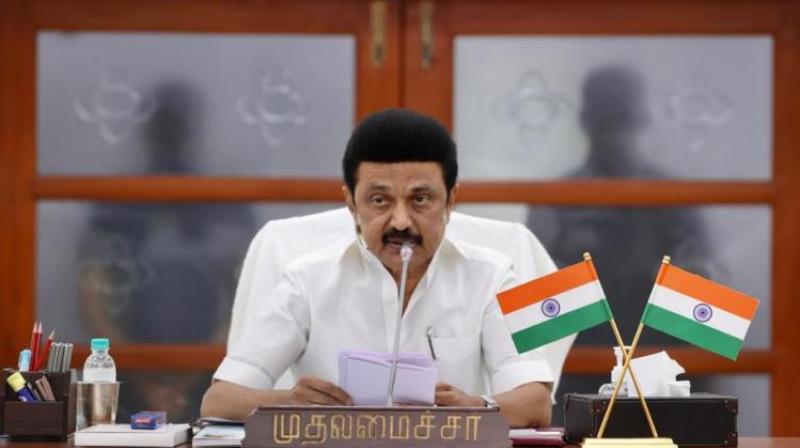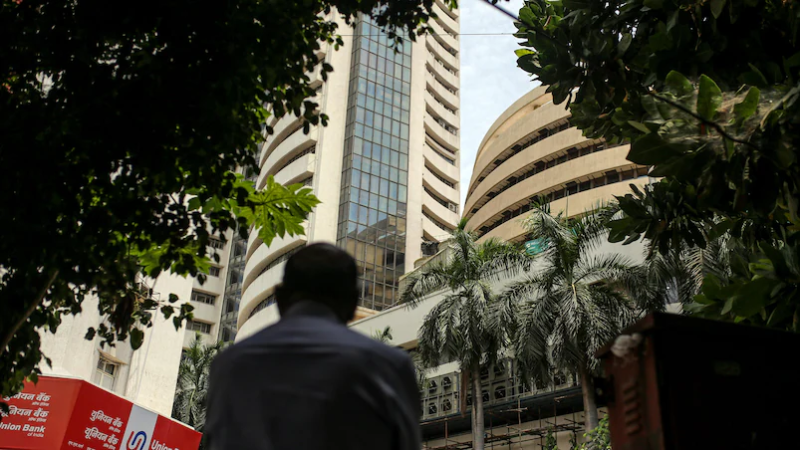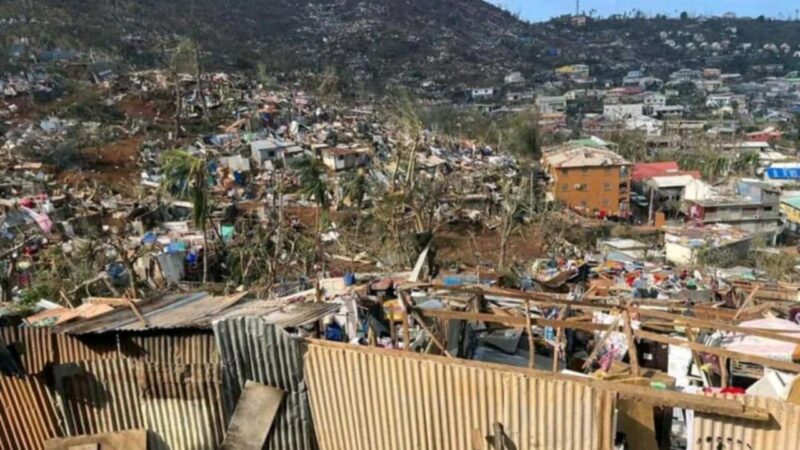“Stalin Urges Democratic Forces to Unite Against ‘One Nation, One Election’ Bill”

Tamil Nadu Chief Minister M.K. Stalin has called on all democratic forces across the country to unite in opposition to the ‘One Nation, One Election’ (ONOE) Bill being advanced by the BJP-led Union government.
Tamil Nadu Chief Minister M.K. Stalin has called on all democratic forces in the country to unite against the ‘One Nation, One Election’ (ONOE) Bill being pushed by the BJP-led Union government.
CM Stalin accused the BJP, under Prime Minister Narendra Modi, of advancing this proposal as a way to distract from its failure to address pressing issues.
In a statement shared on the social media platform X, CM Stalin wrote, “All democratic forces must unite and fight vehemently against this abomination disguised as electoral reform, to protect India, its diversity, and the Constitution.”
He emphasized that the INDIA bloc (Indian National Developmental Inclusive Alliance) will oppose the “anti-federal and impractical” ‘One Nation, One Election’ proposal, warning that it could steer the country towards a unitary form of governance, threatening its diversity and democracy.
CM Stalin further asserted that the Union government’s push for ‘One Nation, One Election’ is driven by an underlying agenda to introduce a presidential system, which he argued goes against the very essence of India’s Constitution.
The Tamil Nadu Chief Minister cautioned that if the proposed Bill is passed and implemented, it would undermine the legal checks and balances enshrined in the Constitution.
He emphasized that periodic elections were designed by the framers of the Constitution to protect the nation from anarchy and totalitarianism.
“State elections would lose their political significance, and regional sentiments and diversity would be eroded,” CM Stalin warned.
He also pointed out that while the BJP lacks the majority needed to pass such a critical piece of legislation, it is making a “brazen attempt” to divert attention from its governance failures.
It is worth noting that CM Stalin had previously introduced a resolution in the Tamil Nadu Legislative Assembly in February 2024 opposing the ‘One Nation, One Election’ proposal.
At that time, he stated, “The Legislative Assembly urges the Union Government not to implement the ‘One Nation, One Election’ policy, as it contradicts the principles of democracy, is impractical, and is not enshrined in the Constitution of India.”
During the debate on the resolution, BJP MLA Vanathi Sreenivasan from Coimbatore defended the proposal, stating, “India is the largest democratic country, and a committee has been formed to discuss the idea of ‘One Nation, One Election.’ Every party can express its views in the committee. Elections are held every year in some state or another, and ‘One Nation, One Election’ can be a solution to this. Even former Tamil Nadu Chief Minister Karunanidhi spoke about the need for ‘One Nation, One Election’ in his book ‘Nenjukku Neethi’.”
The Union Cabinet recently approved the ‘One Nation, One Election’ Bill, which is now set to be introduced in Parliament. The government plans to refer the Bill to a Joint Parliamentary Committee (JPC) for further scrutiny. Earlier this year, a high-level panel led by former President Ram Nath Kovind submitted its report on the feasibility of the ‘One Nation, One Election’ proposal.
The weather department has forecast heavy rain in the coastal districts of Tamil Nadu starting Tuesday.
The Regional Meteorological Centre (RMC) has reported that a low-pressure area over the southeast Bay of Bengal is expected to intensify and move west-northwest towards the Tamil Nadu coast in the next two days, bringing rainfall from Tuesday. The formation of this low-pressure area is attributed to the influence of an upper air cyclonic circulation over the south Andaman Sea and the adjoining southeast Bay of Bengal, according to the weather department.
The RMC predicts heavy rain at several locations across coastal Tamil Nadu and Puducherry, with thunderstorms and lightning at isolated spots. Heavy to very heavy rain is expected in isolated areas of Cuddalore, Mayiladuthurai, Nagapattinam, Tiruvarur, and Karaikal. The department also forecasts heavy rain at isolated places in Chengalpattu, Villupuram, Kallakurichi, Ariyalur, Perambalur, Tiruchirappalli, Thanjavur, Pudukkottai, and Puducherry.
On Wednesday, light to moderate rain is expected across Tamil Nadu, Puducherry, and Karaikal, with thunderstorms and lightning in isolated locations. Heavy to very heavy rain is likely at isolated places in Cuddalore, Villupuram, and Puducherry, along with rain in parts of Tiruvallur, Chennai, Chengalpattu, Kancheepuram, Tiruvannamalai, Kallakurichi, Mayiladuthurai, Nagapattinam, and Tiruvarur districts.
Tamil Nadu has recorded 14 percent excess rainfall during the ongoing northeast monsoon season, with 447 mm of rainfall against an average of 393 mm. Chennai has received 845 mm, which is 16 percent above average, while Coimbatore saw a 47 percent increase in rainfall.
Fishermen have been advised to refrain from venturing into the sea, and those already at sea have been urged to return to shore immediately.
This weather alert follows the devastation caused by Cyclone Fengal, which impacted Tamil Nadu and Puducherry between November 29 and December 1. Cyclone Fengal brought heavy rainfall, followed by significant downpours from a low-pressure area over the south Bay of Bengal. The cyclone and subsequent rains led to the loss of 12 lives and inundated 2,11,139 hectares of agricultural land, causing major losses to farmers. Extensive infrastructure damage occurred, including the destruction of 1,649 kilometers of electric conductors, 23,664 electric poles, 997 transformers, 9,576 kilometers of roads, 1,847 culverts, and 417 tanks, along with damage to numerous homes.
Villupuram, Tiruvannamalai, and Kallakurichi districts received over 50 cm of rainfall in a single day, equivalent to the average for an entire season, leading to severe flooding and extensive crop damage. The Tamil Nadu government reported that 69 lakh families and 1.5 crore individuals were affected by the disaster.
In response, Chief Minister M.K. Stalin wrote to Prime Minister Narendra Modi, requesting Rs 2,000 crore in interim relief from the National Disaster Response Fund. The state government submitted an initial damage assessment report, estimating a need for Rs 2,475 crore for relief and reconstruction. The central government has sanctioned Rs 944 crore as interim relief for the affected regions.


